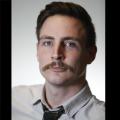OXFORD University has led tributes to city-born scientist Stephen Hawking, saying the former student ‘reminded us all to be curious’.
Oxford mathematics professor and colleague Roger Penrose said Prof Hawking’s ‘almost supernatural gifts’ were ‘a true symbol of the triumph of mind over matter’.
The professor’s alma mater, University College, said it felt ‘great sadness’ and quoted his former tutor there, Robert Berman, who once said: “It was only necessary for him to know that something could be done, and he could do it without looking to see how other people did it.”
Visit Oxford Tours reminded people that not only was Stephen Hawking born here, both his parents studied at the university.
Stephen William Hawking was born in Oxford on January 8, 1942, ‘exactly 300 years after the death of Galileo’, as his website points out.
His parents, Frank and Isobel, actually lived in north London, but came to Oxford to have their son because it was considered safer during the Second World War.
The family moved to St Albans when the young Stephen was eight, but he returned just nine years later when he won a place at Univ – his father’s old college.
In between spending what he later estimated was ‘about a thousand hours’ studying natural science, he also joined the college boat club.
In a tribute yesterday, Univ said: “Hawking was an active and enthusiastic member of University College Boat Club, where he coxed.
“He maintained a keen and lifelong interest in Univ and returned here on numerous occasions, including a visit in 2016 when he met with a small group of our current physics students.”
After graduating with a first class honours degree, he won a place to study at Trinity Hall, Cambridge, in 1962.
It was there, with his mentor and inspiration Roger Penrose, that he demonstrated that Einstein’s general theory of relativity implied space and time would have a beginning in the Big Bang and an end in black holes.
Professor Penrose said in a tribute yesterday that friends would remember Professor Hawking’s ‘enormous zest for life, great humour, and tremendous determination, yet with normal human weaknesses, as well as his more obvious strengths’.
He added: “It seems clear that he took great delight in his commonly perceived role as ‘the No 1 celebrity scientist’; huge audiences would attend his public lectures, perhaps not always just for scientific edification.”
It was also at Cambridge in 1963, shortly after his 21st birthday, that the young Hawking was diagnosed with ALS – a form of Motor Neurone Disease – and given a few years to live.
He went on to live another 55 years, marry twice and have three children.
In 1978, Oxford University honoured its former student with an honorary doctorate of science
Yesterday the university said it was ‘enormously saddened by his passing’, adding: “He reminded us all to ‘be curious’, for there is ‘always something you can do and succeed at’.”
Professor Hawking passed away yesterday morning, aged 76.
He is survived by his three children, Robert, Lucy and Timothy.








Comments: Our rules
We want our comments to be a lively and valuable part of our community - a place where readers can debate and engage with the most important local issues. The ability to comment on our stories is a privilege, not a right, however, and that privilege may be withdrawn if it is abused or misused.
Please report any comments that break our rules.
Read the rules hereLast Updated:
Report this comment Cancel